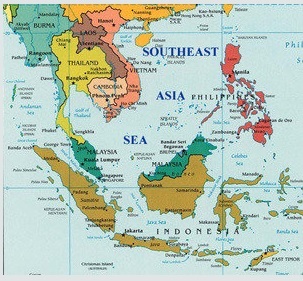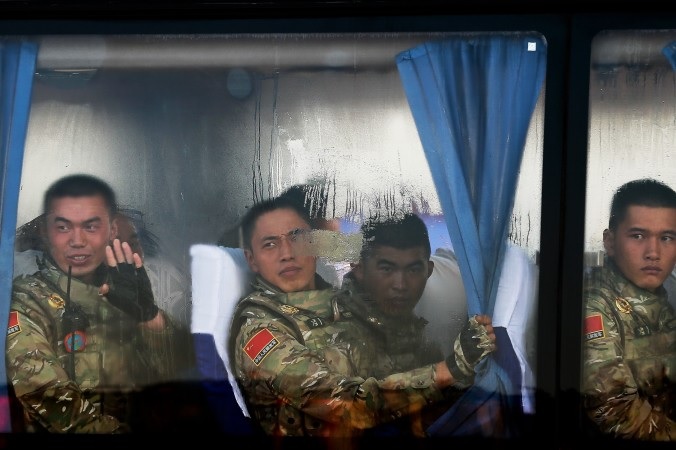Trang Chính
Blog Phạm-Hoàng-Tùng:Biển Cả Và Con Người:
Bưu-Hoa Việt-Nam:
Chết Bởi Trung Cộng:
Địa-Linh Nhân-Kiệt Của Việt-Nam:
Điện-Toán - Tin-Học:
Ebooks Hồi-Ký - Bút-Ký:
Hịch Tướng Sĩ:
Hình-Ảnh Quân-Lực Việt-Nam Cộng-Hòa
History Of Viet Nam
Hoàng-Sa Trường-Sa Là Của Việt- Nam:
Hồ-Sơ Chủ-Quyền Quốc-Gia Việt- Nam
Hội Sử-Học Việt-Nam
Vietnam Human Rights - Human Rights Activist
Lá Thư Úc-Châu
Lịch-Sử Việt-Nam Cận-Đại:
Lịch-Sử Việt-Nam Ngàn Xưa:
Ngàn Năm Thăng Long (1010 - 2010)
Nghĩa-Trang Quân-Đội Biên-Hòa
Nguyên-Tử Của Việt-Nam Và Quốc- Tế
Người Dân Khiếu-Kiện:
Phụ-Nữ, Gia-Đình, Và Cuộc Sống:
Quốc-Tế:
Sitemap:
Southeast Asia Sea:
Tiền-Tệ Việt-Nam:
Tin Nhắn, Tìm Thân-Nhân Mất-Tích, Mộ Tìm Thân-Nhân:
Tin-Tức Thời-Sự Việt-Nam:
Thư-Tín:
Tòa Án Hình Sự Quốc Tế Về Việt Cộng và Trung cộng:
Tưởng-Niệm 50 Năm 1963 - 2013 :
Ủng Hộ Trúc-Lâm Yên-Tử - Donate:
Thư Mục Các Trang Web - Weblinks:
Cây có cội, nước có nguồn. Toàn dân Việt-Nam ngàn đời ghi nhớ ân đức Quốc Tổ Hùng Vương
Southeast Asian Seas


Chuyên mục Southeast Asia Sea được thành lập nhằm khẳng định chủ quyền biển Đông từ hơn 10 ngàn năm của dân tộc Việt-Nam.
Từ hơn 10 ngàn năm qua, dân tộc Việt-Nam đã sống với biển, gần biển. Đây là nền văn minh chói sáng của tộc Việt.
Tình cảm gắn bó giữa biển và con người Việt Nam đã có chiều dài hàng 10 ngàn năm và tình cảm này vĩnh viễn không thể nào chia cắt được cho dù trải qua nhiều sự thay đổi của lịch sử.
CHINA SECURITY: China Reins in Its Hacker Army
By Joshua Philipp, Epoch Times | November 9, 2015
Last Updated: November 16, 2015 7:39 pm

Chinese People's Liberation Army troops look out from a bus as they arrive at Tiananmen Gate in Beijing on Sept. 3. The Chinese regime is planning to restructure its military, and control of its hacker units may be shifted. (Andy Wong/Getty Images)
Rumor has it the Chinese regime will move its cyberwarfare units under a single command structure. Unnamed sources told Bloomberg in mid-October that Chinese cyberunits from all departments would be moved under a centralized command under the Central Military Commission.
Changes were allegedly discussed during the Chinese Communist Party’s (CCP) Fifth Plenum, attended by more than 350 top CCP officials, where they lay out the new five-year economic plan.
Bloomberg followed with some interesting analysis, but in my opinion, it missed the mark. First of all, the Chinese regime already has a command structure for its cyberdepartments, which on the surface—and under proposed changes—is headed by the Central Military Commission. Second, proposals for the new Chinese military structure give a much more complex picture of how its cyberunits will be managed.
As things stand now, the CCP’s cyberunits are broken into three tiers. The structure, which is already under the Central Military Commission, was detailed in the latest edition of The Science of Military Strategy, published by the top research institute of the People’s Liberation Army (PLA). While the document was released in 2013, details on the cyberstructure were only reported in the West in March this year.
At the top of the cyberstructure are the specialized PLA military units assigned to attack and defend networks. Next are the specialists in civilian organizations—including the the Ministry of State Security and the Ministry of Public Security—that are “authorized by the military to carry out network warfare operations.” The third tier are groups outside the regime, which presumably include nationalistic hackers (often known as “Patriot Hackers”), that can be called on for cyberoperations when needed.
The Central Military Commission is technically in charge of these units, but when it comes to actual power within the PLA, things aren’t that simple.
According to the surface structure, the Central Military Commission heads the General Staff Department, which in turn heads the hacker units under its Third Department. In an investigative report in September, however, Epoch Times revealed that the real power behind the PLA hackers is the 61 Research Department of the Third Department.
The 61 Research Institute is led by Maj. Gen. Wang Jianxin, son of Wang Zheng who pioneered the CCP’s signals intelligence operations under Mao Zedong. Sources told the Epoch Times that while Wang’s department is several tiers below the Central Military Commission, he’s an extremely powerful man.
This is where the new structure comes into play. It ties into plans to restructure the entire PLA, and cut 300,000 troops, announced by CCP leader Xi Jinping in early September.
Shortly after the announcement, South China Morning Post—which has been growing increasingly close to the Chinese regime—released an infographic showing a proposal for the new structure.
Under the current system, most of the military is controlled by the Central Military Commission, with some power shared with the State Council through its joint influence over the Ministry of National Defense.
With the new structure, however, a large chunk of military units would be placed under the Ministry of National Defense—which means the State Council would have more of a hand in their operations.
The State Council is technically the government of China, but it’s still controlled by the CCP.
MORE:
CHINA SECURITY: Are China’s New ‘Floating Islands’ Being Built for the Indian Ocean?
-
CHINA SECURITY: Foreign Manufacturers Behind China’s First Homegrown Passenger Plane
Meanwhile, the unit in charge of the hackers—the General Staff Department—would be given command over three other departments: General Political Department, General Logistics Department, and the General Armaments Department.
In an odd knot, control of those same three departments will be shared under the Ministry of National Defense. And oddly, also under the Ministry of National Defense will be some departments with ties to cyberespionage. Among them are the regional defense and research departments, the National Defense University, the Academy of Military Science, and the National University of Defense Technology.
In other words, the military hackers would officially remain under the Central Military Commission, but departments tied to their operations would be jointly controlled by an office managed by both the Central Military Commission and the State Council.
Keep in mind, these are still just proposals. But it appears the changes aren’t meant to consolidate command of the CCP’s hackers. Instead, it looks like the changes are designed to rein in the hackers by giving the State Council some indirect sway over their actions. Several sources have told the Epoch Times that the Chinese regime has trouble controlling finances tied to military hackers, and this has caused forms of corruption that the leadership wishes to stem.
The new system would give the State Council—the highest executive agency in the Chinese state (though of course below the Politburo Standing Committee)—more oversight. This puts the infrastructure for economic theft under the Ministry of Defense, while giving more government oversight over the activities, thus depriving the PLA of some of its autonomy.
http://www.theepochtimes.com/n3/1894442-china-security-china-reins-in-its-hacker-army/
Thư-Viện Bồ Đề Online @ Trúc-Lâm Yên-Tử
 Việt-Nam Sử-Lược Tân-Biên_Lịch-Sử Việt-Nam
Việt-Nam Sử-Lược Tân-Biên_Lịch-Sử Việt-Nam
***
Bài Viết Tin-Tức Thời-Sự Mới Nhất có liên quan đến Lịch-sử Việt- Nam và Lich su viet nam
Vua Trần Nhân Tông:
Thư-Viện Bồ Đề Online:
Trang Bài Viết Của Các Tác Giả :(Bằng-Phong Đặng-Văn-Âu; Bình-Minh; Bút Xuân Trần-Đình-Ngọc; Dạ-Lệ-Huỳnh; Đặng-Quang-Chính; Điệp-Mỹ-Linh; nguyễn-duy-ân; Nguyễn-Hàm Thuận-Bắc; Ông Bút; Trần-Đăng_Chân-Chính; Đặng-Huy-Văn; Kita Kha; Lê-Anh-Hùng; Lu-Hà; Mây Cao-Nguyên; Mây Ngàn; Mặc-Khách; Minh-Di; Nguyễn-Doãn-Kiên; Nguyễn-Nhơn; Nguyễn-Quang-Duy; Nguyễn-Thái-Sơn; Nguyễn-Thu-Trâm 8406; Trần-Văn-Giang; Quách-Vĩnh-Thiện; Mai-Hoài-Thu; Minh-Vân; Nguyễn-Chí-Thiện; Nguyễn-Khôi; Nguyễn-Thị-Thanh; TL Nguyễn-Việt Phúc-Lộc; Nhật-Hồng Nguyễn-Thanh-Vân; Phạm-Ngọc-Thái; Phan-Văn-Phước; Quê-Hương; Thanh-Sơn; ThụcQuyên; ThụcQuyên; Vĩnh-Nhất-Tâm; Trang Trần-quốc-Kháng_Truyện Dài Thời Chiến-Tranh Việt-Nam (Ebooks):
***
Châm Biếm - Điện-Ảnh - Thơ Văn - Sáng-Tác - Hồi-Ký - Triết-Học - Truyện Ngắn
________
- Giới-Thiệu Các Web, Blog Mới - Trúc-Lâm Yên-Tử